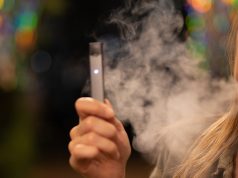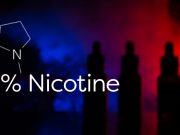
The entire US vaping market concerned
Besides the requirement to submit scientific and manufacturing data for review, the American law also requires that vaping products exhibit health warnings on their packaging and that sales are forbidden to the under-18s.
The most striking part of this regulation remains the predicate or Grandfather date. In agreement with the new Tobacco Act, for all the products marketed after February 15, 2007, the manufacturers or importers must file a pre-market tobacco application (PMTA) to the FDA and receive their agreement to distribute their products.
As anyone knows most of the devices and e-liquids have been introduced on the market after 2007, why means that most of the vaping products currently available in US stores will have to undergo the PMTA process.
“As it relates to e-liquids that contain zero nicotine, generally, if your zero-nicotine product is not made or derived from tobacco, it may still be a tobacco product subject to FDA regulation if it is intended or reasonably expected to be used with or for the human consumption of a tobacco product; or intended or reasonably expected to alter the performance, composition, constituents, or characteristics of a tobacco product (with certain exceptions relating to controlling moisture or temperature for storage and initiating external heat source), your product is subject to FDA regulation” answered the FDA to concerns about FDA’s prerogatives on products that do not contain nicotine (or any other tobacco extracts).
Extraordinary sums of money involved to comply with the law
The estimates indicate that 1,500 hours to 5,000 hours will be necessary for the FDA to review each file. Hence, the cost of the submission to the FDA of a PMTA could reach between $330,000 and $2,000,000 and up to $10,000,000 according to certain professionals.
Because the administrative cost is so important, almost all the independent vaping sector is threatened with closing. Only the biggest companies, some of them being subsidiaries of Big Tobacco companies, would be able to absrob the financial burden.
“It is not surprising, FDA’s maintaining the predicate date on February 2007 in itself is responsible for the closing of thousands of small businesses et kill the employment of tens of thousands of people” says AVA’s president Gregory Conley about the law.
Two years to get in the way of compliance
The FDA has already established the agenda to get in compliance with the law. Manufacturers have two years to submit PMTA. The FDA allows themselves an additional year to review the files. In between, the vaping products will still be legally sold in stores throughout the country.
While certain fear about the development of a black market and associated health security issues, others anticipate that the offer of small independent vaping businesses will progressively be excluded from the market in favor of the most popular and financially robust brands. It could be the case of Nicopure, for example, the manufacturer of the e-liquid brand Halo who legally challenged the FDA within a short delay after the law was released.











